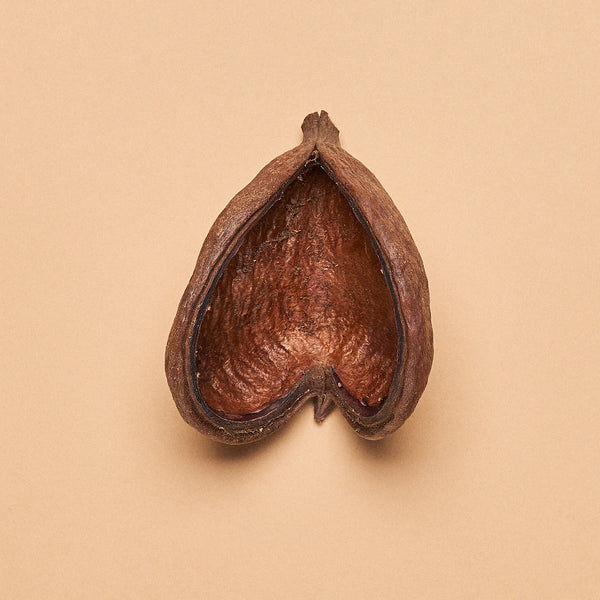- Continue Shopping
- Your Cart is Empty
Sterculia Pod
Sold Out
The beautiful fruit, or "follicle", as botanists call it) of the jungle tree Sterculia foetida are among our favorite botanicals! Also known locally in Southeast Asia as the "Java Olive." They are carefully collected as fallen specimens from areas free of pesticides or other contaminants, gently cleaned, and sun dried.
Sterculia Pods have an almost "woody" appearance and texture, and are quite durable. They make perfect little hiding spots for dwarf cichlids, catfish, and other fishes. A perfect natural "prop" to simulate the flooded forest or tropical stream biotope, where branches, seeds, and pods like these fall in and accumulate, adding to the richness of the biotope! Lots of aesthetic and functional possibilities with these pods!
They're about 4” (10.16cm) or so in diameter on average, with openings around 1.75”-2.5" (4.45-6.35cm). These pods will leach some tannins into the water over the long term.
Awesome extra trivia: The genus name, Sterculia, means "bad smelling", and the origin is from the Roman god, Sterquilinus, the "god of manure or feces"...Seriosuly, we don't make this stuff up! For more on this cool pod, check out this recent edition of "The Tint!" . This was just before we changed from the old moniker, "Jungle Pod" to the more technically accurate "Sterculia Pod."
PREPARATION: You need to boil Sterculia Pods for at least an hour (sometimes a bit more) to really saturate them, because they do float like mad when first immersed.
ORIGIN: Southeast Asia (Our suppliers are in Thailand and Tamil Nadu, India)
#sterculiapods
NOTE: These are a natural product, and display variation in color, size, and texture. Each pod is unique! The photo serves as a reasonable representation of what to expect.
All of our aquatic botanicals are intended for ornamental aquarium or terrarium use only. Please use common sense and take the time to boil or soak all botanicals prior to using them, to reduce the possibility of problems. Always go slow when introducing any botanicals into your systems, so you can judge the effect they have on your fishes and plants. They are not intended for human consumption. DO NOT INGEST!
NOT FOR HUMAN CONSUMPTION
SEE OUR SHIPPING AND HANDLING PAGE FOR OUR SHIPPING POLICIES



Related Items
Sterculia
Sold Out - $ 16.00
The leaves of the Guava tree (Psidium guajava) provide many benefits for aquaria, including their well-documented antibacterial properties and their great value as a supplemental food source for ornamental shrimp....
Catappa Leaves- Medium Size
Sold Out - $ 14.00
The leaves of the Indian Almond Tree, (Terminalia catappa), provide numerous benefits for tropical fish. The leaves, when steeped in water, impart a beautiful golden-brown color, reduce the pH, and...
Banana Stem Pieces
$ 5.00
Banana stems, (Musa spientum), have a cool, almost "bonelike" appearance and texture, and are quite strong. They make great little aesthetic accents and foraging areas for a variety of aquatic...



















